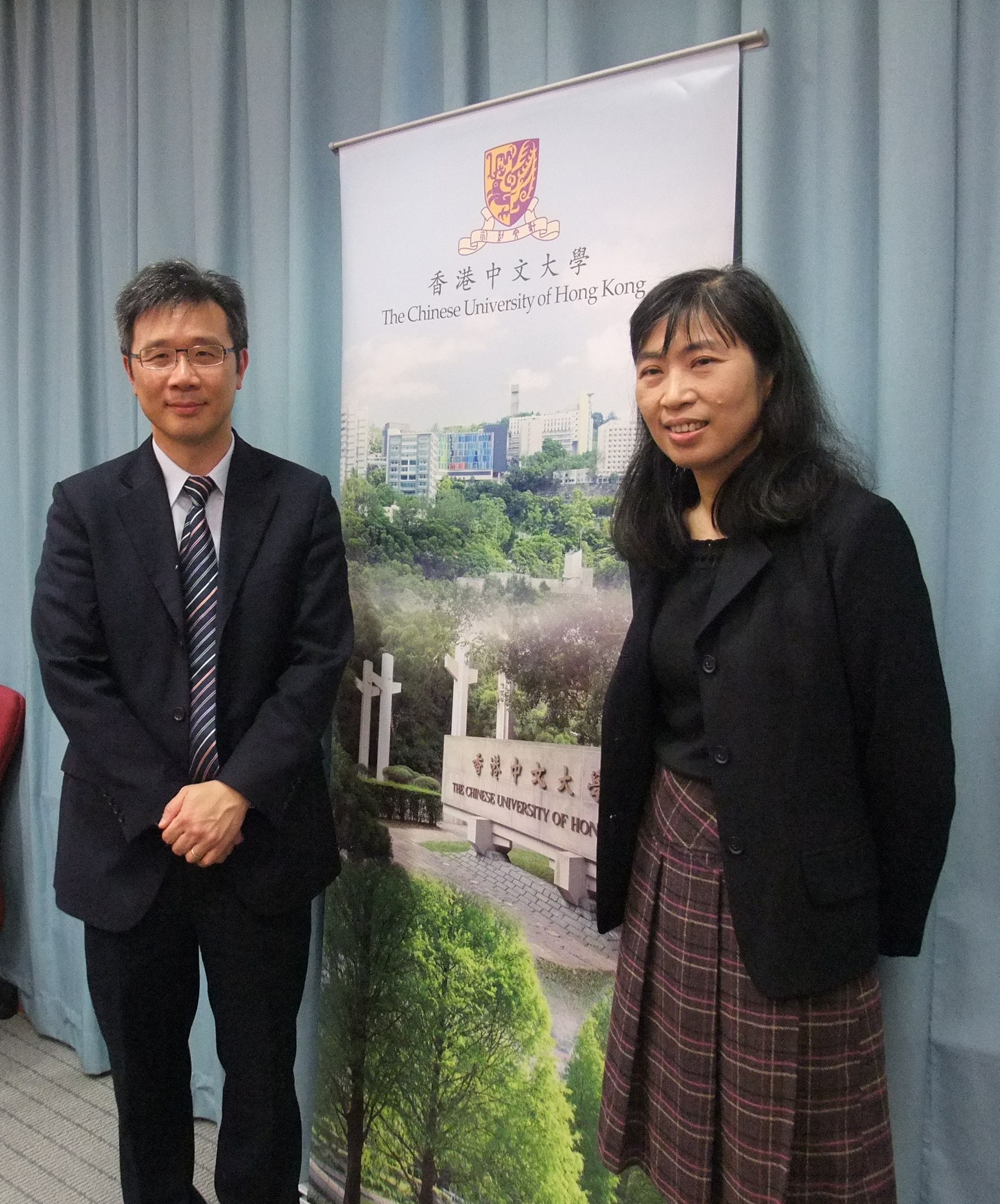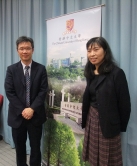CUHK
News Centre
CUHK New Four-year Engineering CurriculumNurtures Engineering Talents to Improve People’s Living
The Faculty of Engineering of The Chinese University of Hong Kong (CUHK) will introduce its new normative undergraduate curriculum to tie in with the implementation of the '3+3+4' academic structure in 2012. The new curriculum is designed not only to impart knowledge and skills to students, but also to widen their perspective in ethical, social, environmental issues and current engineering practice so that they will become all-rounded engineering experts who have the agility to adapt to social changes and meet challenges in their future careers.
Broad-based Admission
The Faculty will implement the broad-based admission scheme starting from 2012 to replace the existing mode of programme-based admission. It aims at providing students with the opportunity to understand various disciplines of engineering before deciding on their major stream according to their interests and strengths. A single admission exercise and requirement will be applied to all seven engineering programmes (Biomedical Engineering, Computer Science, Computer Engineering, Electronic Engineering, Information Engineering, Mechanical and Automation Engineering, and Systems Engineering and Engineering Management) under the 'CUHK Engineering Programme'. Eligible students will be directly admitted to the Faculty in their first year of study and allocated a major programme of their preference in their second year. Allocation will be primarily based on the students' own choices, followed by their academic performance and resource availability (such as laboratory equipment).
New Core Courses
Students are required to complete 9 units of courses in the Faculty Package, including:
– Introduction to Engineering Design I (required) and Introduction to Engineering Design II (3 units each) – students will gain a broad appreciation of engineering design concepts and develop the ability to design a system or product to meet specification and performance goal;
– Introduction to Computing (3 units) – students will develop the ability to apply computer programming to solve engineering problems;
– Technology, Society and Engineering Practice (required, 3 units) – students will gain a broad perspective and reflect on the impact of engineering on people's living, environment and society. They will appreciate the importance of intellectual property, professional ethics, liability and responsibility. It also covers practical aspects of engineering such as professional society registration and workplace safety.
Pilot Courses with Positive Feedback
Currently only certain programmes of the Faculty require students to take courses related to engineering design. One of the new core courses, Introduction to Engineering Design I, is a hands-on project-based course allowing all students to gain experience in engineering design and construction (e.g. to design a motor car) in their first year of study. The new course equips students with a good foundation of engineering concepts, experimental skills and design methodology to facilitate their research and internship in later years of study, offering all-round engineering training. This new course has been piloted in the 2010-11 academic year and was highly praised by teachers and students. The students appreciated the opportunity to gain hands-on experience in the whole process of engineering design: from defining specifications of the design, carrying out experiments, analyzing data for refining the design, prototyping the final design and testing the system, allowing them to apply the theories learnt in class.
Experiential Learning Opportunities and Mentorship Programme
The new four-year curriculum emphasizes practical and experiential learning. Laboratory work, project development and other learning activities, including site visits, case studies and experience sharing by professionals, take up 60% of the total course contents, while the remaining 40% are for lectures and tutorials. The Faculty also offers ample research and internship opportunities to broaden students' horizons.
In 2012, the Faculty will launch a mentorship programme in which each student will be coached by a professor or an instructor in the Faculty. Students can seek individual assistance and advice from their mentors on their studies, career development and other aspects of life.
Career Prospects
The new four-year curriculum is designed to strengthen students' multi-disciplinary knowledge, so that graduates will enjoy a wide spectrum of career choices in industrial, commercial and the civil service sectors. The Faculty also advocates entrepreneurship and encourages students to start their own businesses by providing staunch support, including organizing young entrepreneur contests and facilitating applications for funds. Graduates can also pursue postgraduate studies and take up teaching and research positions in local and overseas universities.
More New Programmes Coming
The Faculty has launched six new focus areas catering to the needs of society (biomedical engineering, energy technology, cyber security, financial engineering, nanotechnology and systems integration — electronic / photonic packaging). The undergraduate programme for biomedical engineering has been launched in the 2011-12 academic year, and the undergraduate programme for energy technology will also be launched soon to strengthen the Faculty's position as a leading engineering school in Asia.
Admission Requirement for CUHK New Engineering Curriculum
|
|
Subject |
Minimum Grade Attained in HKDSE |
|
4 core subjects |
English Language |
3 |
|
Chinese Language |
3 |
|
|
Mathematics (Mathematics Extended Module 1 or 2) |
3 (3) |
|
|
Liberal Studies |
2 |
|
|
1 elective subject (from the Science subjects specified) |
Biology / Chemistry / Combined Science / Physics |
2 |





